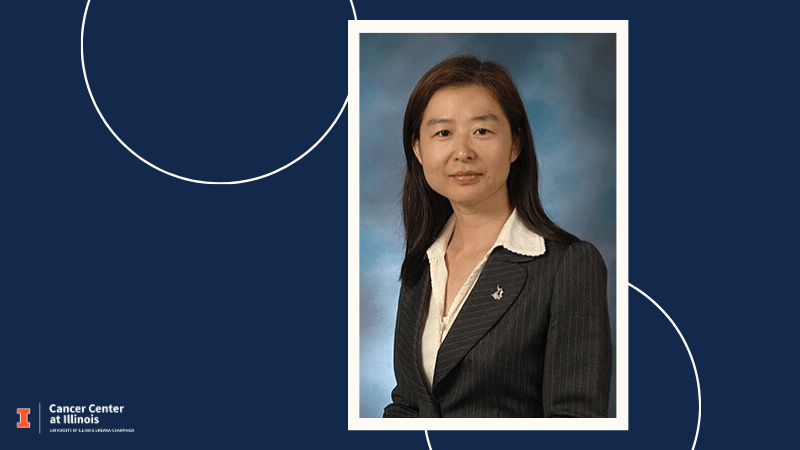In 2019, Hua Li, research associate professor of bioengineering, was awarded more than $2M from the National Cancer Institute (NCI) shortly after joining the University of Illinois.
Since receiving the NCI funds, Li, also a clinical medical physicist at Carle Foundation Hospital, has focused on her research with Cancer Center at Illinois (CCIL) members and her clinical practice at Carle, applying her background in medical imaging and analysis to further the field of cancer diagnostics and therapy.
“Imaging plays a very critical role in the diagnosis and treatment of cancer and other diseases. It touches all aspects of the diagnostic and treatment workflow, so there are many opportunities for me to apply my expertise,” Li said.
Li’s studies have a strong focus on head and neck cancers, where an abundance of soft tissue and motion patterns in the neck can complicate treatment accuracy. She is also collaborating with other researchers and physicians on studies involving brain, cervical, and breast cancers, including a Mayo-Illinois project funded by the Department of Defense.
Research in the Li lab currently focuses on image-guided radiation therapy that helps clinicians diagnose and determine the most effective treatment for patients, including tumor delineation, treatment planning and delivery, outcome follow-up, and patient response.
Another advanced research project conducted in her lab aims to provide the answer to a fundamental question: “What is the optimal image that each imaging modality can provide to support clinical practice and ensure accurate disease diagnosis and treatment for patient care?” Objective and clinical task-driven image quality assessments and optimizations help answer this question by use of advanced deep-learning methods.
“Non-invasive imaging biomarkers provide unique information to assist in the whole course of clinical practice,” Li said. “As a researcher with expertise on imaging and medical physics, I also explore biomarkers hiding in images and combine them with genomics and other clinical demographic information for early diagnosis of disease and prognosis of treatment response, especially in cancer diagnosis and treatment.”
Li looks forward to further CCIL-Carle collaborations where she can provide her extensive knowledge of imaging, including the applications of deep learning and machine learning, to existing clinical practice and advance patient care.
— Written by the CCIL Communications Team

